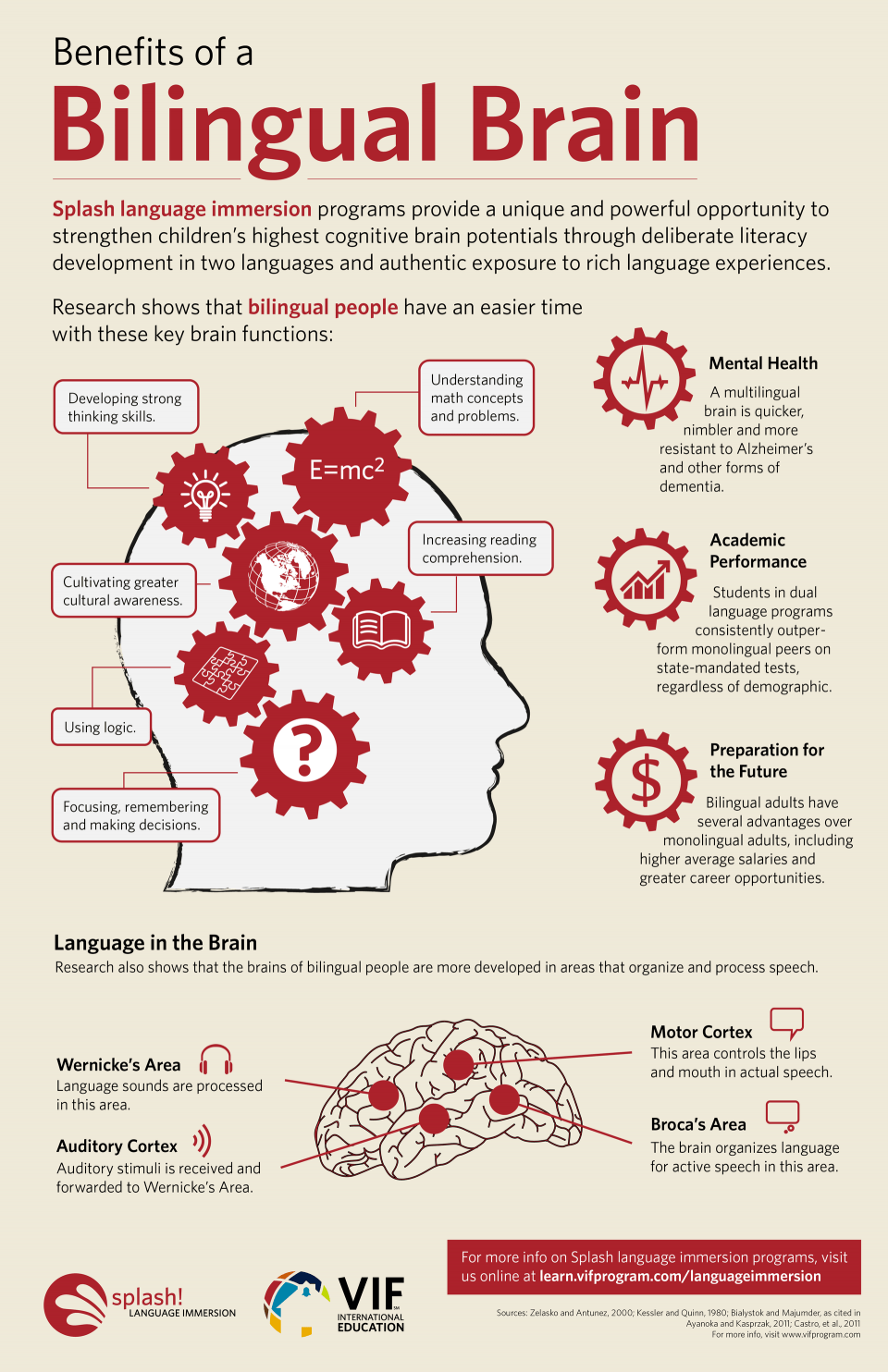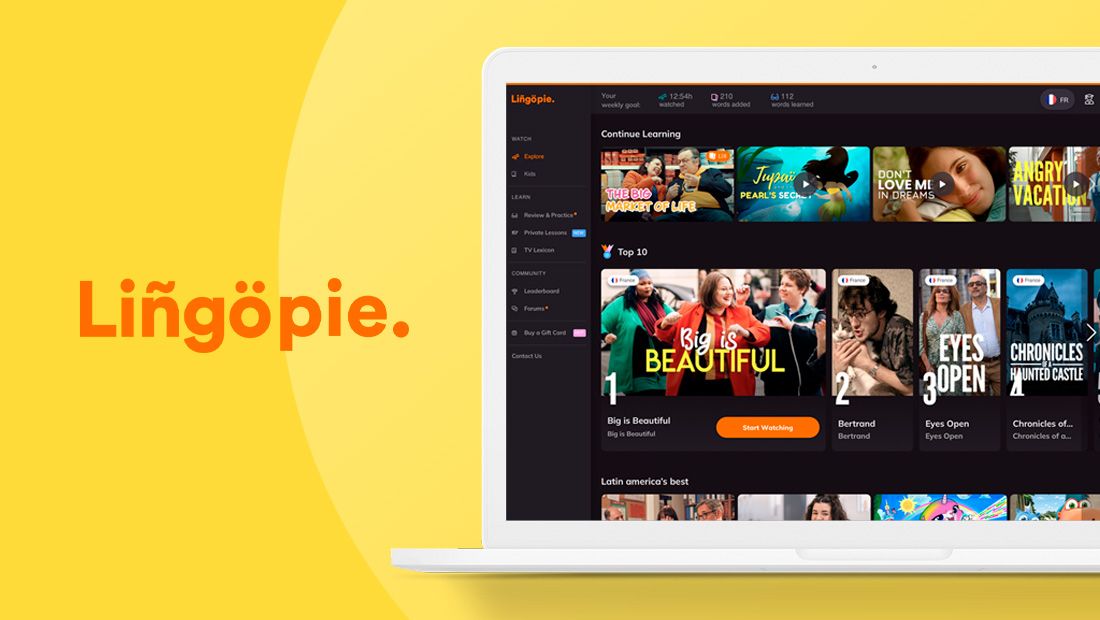Have you been thinking about learning a foreign language, but you aren't sure if it is worth the time and effort? Well, we are here to tell you that it absolutely is!
From career progression and travel opportunities to improved problem-solving and more divergent thinking, the advantages of language learning are vast and diverse.
In this post, we address 7 of the key benefits of language learning and help you to choose which foreign language you would like to learn.
First, let's talk about how to learn other languages, before discussing why it is such an advantage in this modern world.

Learning A Second Language
So, how do you begin to learn a foreign language? There are many ways and means to this great end. These include taking interactive language classes, learning through exposure, and studying textbooks.
Generally, if you study or are exposed to other languages as a child, your language acquisition is rapid and quite straightforward. This is because children's brains are like sponges for new information and they learn languages much faster than adults.
As an adult, the language learning process can be much slower. However, it is still very possible and even fun to take on the challenge!
A great resource for language learning is Lingopie. This is a streaming service that offers TV shows and movies in 8 popular languages (French, Spanish, Italian, Portuguese, German, Russian, Korean, and Japanese).
With Lingopie, you can use dual English and foreign language subtitles, save new words as flashcards and take part in quizzes to test your learning.
One of the advantages of using TV and movies to develop your foreign language skills is that you will pick up colloquialisms, slang, and even curse words that you wouldn't find in a textbook.
Learning through exposure is one of the most natural ways adults and children learn different languages. Hearing native speakers use the language helps you to make connections and naturally build communication skills in the new language.
Now that you have an idea of how to learn a foreign language, let's look at why people learn a second (or third) language.
Read our interesting guide about neuroplasticity in language learning and learn about how the brain adapts to new languages.
The 7 Main Advantages of Knowing a Foreign Language
1. Job Opportunities
Learning languages in this modern and diverse world is a surefire way to put yourself ahead of the competition in the job market.
Whether you want to work abroad or work in your own country with the unique selling point of being bilingual or multilingual, you will have an immediate advantage over monolingual candidates.
Particularly if they can speak uncommon languages, multilingual employees are in high demand in the world of international business. This can be a massive asset for international relations and trade deals.
Multilingual people can also find employment in translation, teaching, foreign correspondence, the immigration sector, hospitality, intelligence, and human resources.
2. Travel Opportunities
The ability to communicate in a foreign tongue can also open a lot of doors for independent travel. Exploring other countries is always safer and easier when you have even a basic understanding of the native language.
Moreover, you can apply for foreign language study programs or live and work overseas programs when you are a language learner. These programs include Erasmus, Camp Thailand, and TEFL (teaching English as a foreign language), among others.
Having travel experience is invaluable as it opens your eyes to other languages, people, cultures, societies, norms, values, and belief systems. The more you know and see the world, the more well-rounded you can become as an individual.

3. Social and Political Growth
Speaking of traveling overseas, there are also social and political advantages to language learning. For instance, you improve your communication skills and your ability to converse with different communities around the world.
This allows you to learn about other cultures and make friends with people you had no access to previously. Moreover, you generally become more open-minded and accepting of differences as you learn more about other ways of life.
Taking part in language exchange is also a valuable aspect of language learning. This is very social and can breed positive attitudes among language students who partake.
What's more, you can learn and teach languages online and through social media. This allows you to connect with people from all around the world to share ideas and knowledge.
4. Arts, Literature, and Science
When you learn a different language, you also gain access to a whole new world of arts, literature, and scientific writing.
You can appreciate the classics in other foreign languages, read journals and theories as they were written, visit a foreign language theatre and read original poetry.
This allows you to take in the arts and sciences as they were intended to be consumed, which is always a different experience from a translation or adaptation.
Moving beyond the content created in your native language is another formative and valuable aspect of knowing more than one language.
5. Music, TV, and Movies
Similarly, you can also begin to enjoy music, TV, and movies in a second language. Having access to entertainment in your target language is a very engaging and natural way to prompt language acquisition.
Watching TV and movies without dubbing or relying totally on subtitles provides a deeper and better understanding of the message and dialogue.
While using subtitles is no bad thing, and can be incredibly helpful, being able to understand the original language increases your enjoyment and overall comprehension.
Moreover, experiencing TV shows, movies, and music in another language opens more doors to cultural awareness. Exposure only to your own language and your own culture is very limiting.

6. Cognitive Benefits
Learning a second or third language requires a lot of effort and brain power. This means you create new brain networks and develop new cognitive skills.
Bilingual people have better problem-solving abilities than people who only speak their native language. Generally, they can identify multiple solutions to one problem.
Moreover, learning languages prompts better listening skills, as well as improved verbal and spatial abilities. Monolingual students tend to perform less well than their bilingual counterparts.
Overall, learning another language is hugely advantageous for the brain's health. This is one of the most compelling benefits of language learning.
7. Prevent Dementia
Finally, it has been suggested that having a second language may delay the development of dementia. Add this to the impressive list of cognitive benefits for bilingual people.

Multilingual speakers generally have a better capacity to multitask and be creative. They have more divergent thinking and more developed neural pathways.
This can keep your brain young, active, and alert for longer. So, learning a second language improves your chances of maintaining a healthy and independent lifestyle as you age.
This means the cognitive benefits of learning additional languages can actually extend your life and physical health.
Choosing Which Language to Learn
Now that you have read the 7 main reasons why learning languages is such a good idea, it is time to start thinking about which language you want to learn.
When you are choosing a different language to learn, you need to consider what your goals are. Is this primarily so that you can work overseas? Or do you want to travel to a particular location?
If you have aspirations to live in a specific place, access the entertainment and literature of a certain culture, or join a particular educational program, this will inform which language helps you to meet your goals.
You can also consider which vernacular takes the least amount of effort to learn for people with your native language. For instance, a native Spanish speaker could choose to learn Portuguese because it is closer to their own language than, say, German.
Finally, think about whether or not you want to learn a new alphabet or script. For some people, learning a new language makes for a fun challenge and an exploration of a whole new writing system, while others can be overwhelmed by this task.
Start with a language that uses the same alphabet as your mother tongue if you want to reap the cognitive benefits of learning languages in an accessible way.
The Easiest Foreign Languages to Learn for English Speakers
If you'd love to speak two languages, but you want a second language that is straightforward to learn, consider studying a Romance Language (Spanish, Portuguese, French, Italian, or Romanian).
Whether or not English is your native tongue, knowing English will help you with these languages as they share roots in Crude Latin and use the same alphabet.
Moreover, if English is your first language, Dutch can be fairly simple to learn. The two languages have a lot of similar words and sounds.
Learning a second language takes effort and time, but it does not have to be so hard!

The Hardest Foreign Languages to Learn for English Speakers
If you speak English or any other language that uses the Latin alphabet, you will find it more challenging to learn languages with different alphabets. For instance, Mandarin Chinese, Russian, Japanese, Korean, and any additional languages with unfamiliar scripts.
That being said, Japanese has three distinct scripts, while Korean has one script that was designed to be logical and easy to learn, so there are still varying degrees of difficulty among these languages.
Moreover, just because something is a challenge does not mean it isn't worth it. Learning Japanese as a second language can be incredibly fulfilling and opens up exciting work and travel possibilities as well as access to awesome Japanese movies and shows.
So, regardless of your native language, do not be put off from learning the language you most want to study. It is possible!
FAQs: The Benefits of Language Learning
Is it hard to learn a new language when your native language is English?
If your first language is English, it can pose a unique challenge for learning other languages as many of the people you meet will revert to English when you try to practice. This is because English is somewhat of an unofficial international language.
However, there are also huge advantages to having English as a native tongue, such as the many cognates in Latin and Germanic languages.
How many people speak more than one language?
Apparently, around 43% of the world population is bilingual, and a further 17% is multilingual. This means that more than half of the global population speaks a second language.
If you are in the minority that speak only one language, this is your prompt to start learning a second language today!
What is the best way to learn a second language?
There are several great ways to develop your language acquisition. It is strongly recommended to visit the country in which your target language is spoken.
Immersion in the local language means your brain can naturally make connections, pick up nuances and learn proper sentence structure.
If you cannot visit other cultures, bring them to you by watching TV and movies in their local language at home.
Can you learn two or more languages at once?
Yes, it is possible to learn multiple languages at once. However, there are pros and cons to learning a second and third language at the same time.
On the one hand, learning a language increases your linguistic awareness. This deeper understanding can help you pick up another language simultaneously. This is especially true if they are similar, like French and Spanish.
However, on the other hand, you might find that you mix up similar spoken languages. The choice to learn one language or multiple is entirely yours.

Summing Up: The Advantages of Knowing More Than One Language
So, there we have it! Now you know 7 of the main advantages of language learning. The benefits enjoyed by bilingual people include work and travel opportunities, access to foreign language arts and music, and improved brain function.
In this post, we have looked at how to learn a new language and which language you might consider studying. Remember, exposure to and immersion in a new language is one of the best ways to build up the acquired language naturally.
Head over to Lingopie if you want to develop your foreign language skills by watching great TV and movies in a second language. With Lingopie, learning a new language can be fun and engaging.
Good luck and have fun developing your language skills!






![5 Official Spanish Language Tests To Show Your Proficiency Level [Guide]](/blog/content/images/size/w300/2025/06/Spanish-Language-Tests.jpg)
![Why Memorizing Spanish Words Won’t Make You Fluent [Tips]](/blog/content/images/size/w300/2025/06/how-to-practice-spanish-vocabulary.jpg)
![How to Improve Your Polish Conversation Skills [5 Best Tips]](/blog/content/images/size/w300/2025/06/improve-polish-conversation-skills.jpg)
